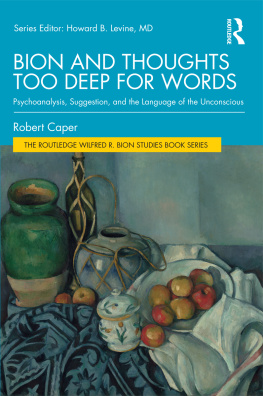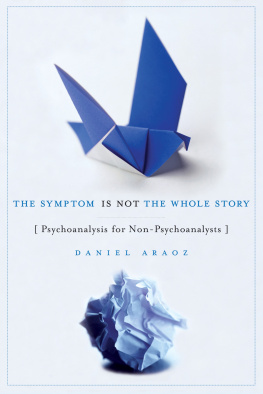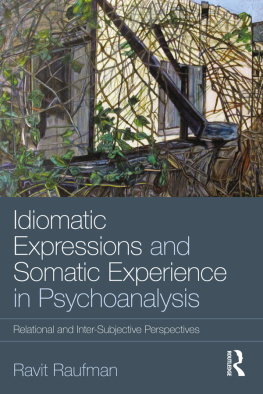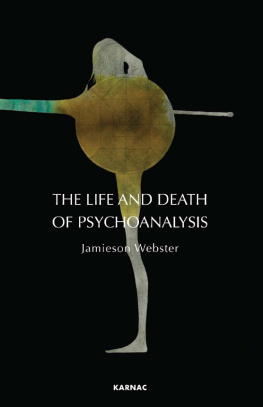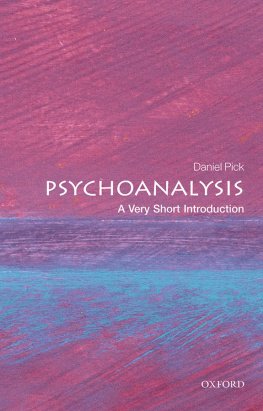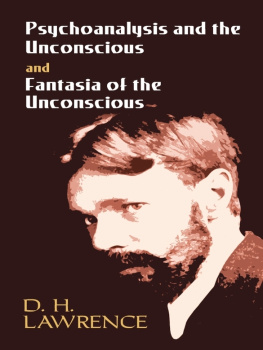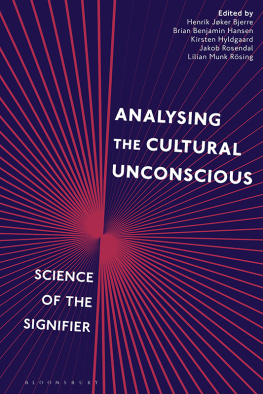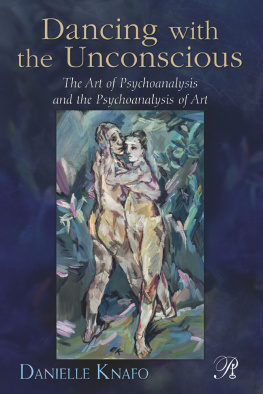BION AND THOUGHTS TOO DEEP FOR WORDS
Distinguishing psychoanalysis, as a search for truth, from suggestion, as a cure for symptoms, this book addresses the scientific status of psychoanalysis. Citing research into the relationship of infants to their caretakers, the author discusses evidence that unconscious communication is present from birth, and that this form of communication plays a central role in psychoanalysis at a level below that of verbal communication.
Informed by Bions ideas of containment, group functioning and the fundamental psychological need for truth, this book asserts that psychoanalysis, based solely on the search for truth, has, among all psychological interventions, both a unique claim to scientific status and a unique ability to foster psychological development.
Exploring the relationship between unconscious communication, group dynamics, containment and psychological development in a highly original way, Bion and Thoughts Too Deep for Words: Psychoanalysis, Suggestion, and the Language of the Unconscious will be of great interest to psychotherapists, psychologists and psychoanalysts who are interested in the relationship between psychoanalysis and suggestion.
Robert Caper, MD, is the author of three books and numerous articles on psychoanalysis. He has lectured in countries all around the world and currently resides in New York City and Vermont where he practices and teaches.
THE ROUTLEDGE WILFRED R. BION STUDIES BOOK SERIES
Howard B. Levine, MD
Series Editor
Editorial Advisory Board : Nicola Abel-Hirsch, Joseph Aguayo, Avner Bergstein, Lawrence J.Brown, Judith Eekhoff, Claudio Laks Eizerik, Robert D.Hinshelwood, Chris Mawson, James Ogilvie, Elias M. da Rocha Barros, Jani Santamaria, Rudi Vermote
The contributions of Wilfred Bion are among the most cited in the analytic literature. Their appeal lies not only in their content and explanatory value, but in their generative potential. Although Bions training and many of his clinical instincts were deeply rooted in the classical tradition of Melanie Klein, his ideas have a potentially universal appeal. Rather than emphasizing a particular psychic content (e.g., Oedipal conflicts in need of resolution; splits that needed to be healed; preconceived transferences that must be allowed to form and flourish, etc.), he tried to help open and prepare the mind of the analyst (without memory, desire or theoretical preconception) for the encounter with the patient.
Bions formulations of group mentality and the psychotic and non-psychotic portions of the mind, his theory of thinking and emphasis on facing and articulating the truth of ones existence so that one might truly learn first-hand from ones own experience, his description of psychic development (alpha function and container/contained) and his exploration of O are non-denominational concepts that defy relegation to a particular school or orientation of psychoanalysis. Consequently, his ideas have taken root in many places and those ideas continue to inform many different branches of psychoanalytic inquiry and interest.
It is with this heritage and its promise for the future developments of psychoanalysis in mind that we present The Routledge Wilfred R. Bion Studies Book Series. This series gathers together under newly emerging and continually evolving contributions to psychoanalytic thinking that rest upon Bions foundational texts and explore and extend the implications of his thought. For a full list of titles in the series, please visit the Routledge website at: www.routledge.com/The-Routledge-Wilfred-Bion-Studies-Book-Series/book-series/RWBSBS
Howard B. Levine, MD
Series Editor
Levine, H.B. and Civitarese, G. (2016). Editors Preface, The W.R. Bion Tradition, Levine and Civitarese, eds., London: Karnac, 2016, p. xxi.
First published 2020
by Routledge
2 Park Square, Milton Park, Abingdon, Oxon OX14 4RN
and by Routledge
52 Vanderbilt Avenue, New York, NY 10017
Routledge is an imprint of the Taylor & Francis Group, an informa business
2020 Robert Caper
The right of Robert Caper be identified as the author has been asserted in accordance with sections 77 and 78 of the Copyright, Designs and Patents Act 1988.
All rights reserved. No part of this book may be reprinted or reproduced or utilized in any form or by any electronic, mechanical, or other means, now known or hereafter invented, including photocopying and recording, or in any information storage or retrieval system, without permission in writing from the publishers.
Trademark notice: Product or corporate names may be trademarks or registered trademarks, and are used only for identification and explanation without intent to infringe.
British Library Cataloguing-in-Publication Data
A catalogue record for this book is available from the British Library
Library of Congress Cataloging-in-Publication Data
A catalog record has been requested for this book
ISBN: 978-0-367-44456-3 (hbk)
ISBN: 978-0-367-41845-8 (pbk)
ISBN: 978-1-003-00986-3 (ebk)
The unconscious, like the past, is another country. They do things differently there
In the roughly twelve decades since psychoanalysis rst emerged from its origins in hypnosis and suggestion with Freuds discovery of the dynamic unconscious, it has evolved into a powerful tool for freeing the mind through study of this previously unknown country.
In this book, I assess some of what psychoanalysis (along with the allied eld of infant observation) has revealed about the ways of this unconscious country, including its language, which occupies a previously unrecognized register. Clinical psychoanalysis is the translation of the language of the unconscious into language accessible to consciousness. The barriers to this translation bring to mind the closing lines of William Wordsworths Intimations of Immortality:
Thanks to the human heart by which we live,
Thanks to its tenderness, its joys, and fears,
To me the meanest ower that blows can give
Thoughts that do often lie too deep for tears.
The deepest layers of the internal object world, lying somewhere on the border of mind and body, imbue the meanest owers of the external world with the emotionality that gives them psychological signicance. This internal world lies too deep for words. Its true language, as bets its bodily origins, is visceral, kinaesthetic and sonorous. Psychoanalysts, though lacking Wordsworths gifts, nonetheless presume to make a clinical practice of translating it into ordinary words, muddling along as best we can.
New York City and Worcester, Vermont, 2019
In 1966, William Condon, working at the University of Pittsburgh, devised a technique for observing conversations between adults using high-speed cinematography followed by a close, frame-by-frame analysis of the words and motions of the speaker and listener. Using this technique, Condon was able to detect body movements too ephemeral to be visible to the naked eye. These lms revealed what he described in retrospect as two sets of interesting and consistent ndings that he called self-synchrony and interactional synchrony. In the formal language of academic science, he wrote,
Self-synchrony refers to the integrated behavior of the individual in which correspondence can be demonstrated, for example, between the lm frame of occurrence of a change in sound elements of his own speech and the lm frame of occurrence of a change in his own body movements. Interactional synchrony designates a similar correspondence between change in sound elements in the speech of a speaker and points of change in movement congurations shown by the listener. These synchronies are not readily detectable at normal communication speed, appear to occur primarily in relation to speech, and are usually totally out of awareness of the individuals so engaged.

